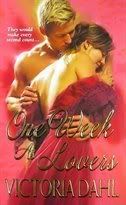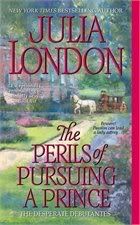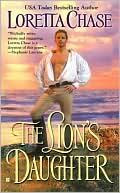For Heroines, we got:
- 1 Repressed Bluestocking Spinster
- 2 Flighty Society Misses
- 1 Practical Country Miss
- 1 Pregnant Rape Victim
- 1 Civil War Orphan
- 1 Angsty Psychic
- 1 Tomboyish Multilingual Warrior
- 1 Alien Zombie Hunter
- 1 Damaged Pretty Boy
- 1 Heartbroken Cop
- 1 Country Bumpkin-turned-Fashion Plate
- 1 Dissolute Rake
- 1 Down-To-Earth Rancher
- 1 Sexy Lumberjack
- 1 Mooching Slacker
- 1 Ugly Prince with Self-Esteem Issues
- 1 Intimidating Recluse With a Dark Past
- "I can't love him - he dresses like a farmer!"
- "I can't love him - he's a technologically-inferior Earthling!"
- "I can't love her - she looks like a twelve-year-old!"
- "I can't love him - if I lose my temper he might go out and be crushed by a tree and it'll be all my fault!"
- "I can't love her - I'm broke!"
- "I can't love her - I'm all ugly and can't tell what colour dress she's wearing!"
- "I can't love him - he's just a rake with no sense of honour!"
- "I can't love him - he's an abusive monster just like my stepdad! I'll still shag his brains out, though."
- "I can't love her - I've got a psychotic murderer to watch as he slowly dies in agonizing pain!"
- 1 Blood-Stained Pillow
- 1 Helpful Ghost
- 1 Helpful (Fake) Ghost
- 2 Rocking Chairs
- 1 Addiction to Peanut Butter
- Several Pairs of Fancy Stockings
- 2 Secret Artistic Talents
- 1 Surprising Allergy to Chloroform
- 1 Hidden Pirate Treasure
- 1 Lost Pair of False Teeth
- 1 Fake Egyptian Artefact
- Several Zombies
Winner of the Eloisa James Award in Historical Sexual Education
Pros: Burn-the-house-down chemistry. Deliciously damaged hero. Gorgeous writing style. Relevant sex scenes. Smooth blend of tenderness and sexiness.
Cons: Silly plot ("I know there's a treasure! My dead 11-year-old great-uncle said so!").
*February Pick* (it's a tie!) The Lion's Daughter, by Loretta Chase. A
Winner of the "Better Make Mine Beta" Hero Award
Pros: Heroine's cuter than a bug's ear but can hog-tie you in two minutes flat. Sexy Beta hero. Sexier villain - who gets a sequel! Yippee!
Cons: Labyrinthine smuggling plot. Annoying 12-year-old secondary character. Also - this book's out of print!
Powder and Patch, by Georgette Heyer. A (It just misses out on being the Monthly Pick - just because I feel the other A-grade books have a shade more depth)
Winner of the Dandy Eye for the Bumpkin Guy Award
Pros: Delightful description, witty dialogue, adorable hero who gives himself a make-over to impress his gal.
Cons: Heroine is incredibly silly, albeit sympathetically so.
Bound By Your Touch, by Meredith Duran. B+
Winner of the Mary Balogh Trophy in Cliche Herding
Pros: Excellently lyrical writing style. Well-developed characters. Good use of themes. Lovely and original depiction of time-honoured Spinster/Rake cliches. Surprising ending.
Cons: Emotionally unengaging.
Pieces of Sky, by Kaki Warner. B
Winner of the Too Angsty To Live Award
Pros: Great setting, sweet and tender romantic pacing, excellently-drawn heroine, pleasant blend of dark and light.
Cons: Telling over showing. A hero who, despite being generally adorable, does some brutally sadistic, cruel and downright evil things for which he shows little/no remorse. A ham-handed 11th hour separation plot that pads the book for 40 pages for no reason.
A Bride in the Bargain, by Deeanne Gist. B-
Winner of the Too Stupid To Live Medal of Honour
Pros: Good development of unconventional setting and time period. No mentions of throbbing members. Lovely cover. Sexy lumberjack hero who has no qualms about getting shirtless.
Cons: Borderline-brain-damaged heroine who believes she can kill people with her mind. Last-minute health crisis that achieves absolutely nothing and stretches the story another 80 pages.
The Down Home Zombie Blues, by Linnea Sinclair. C+
Winner of the Gold Medal in the Field of Insomnia Treatment and Research
Pros: Thorough, detailed world-building. Kick-ass heroine. Rational, intelligent cop hero who's a secret Beta.
Cons: Jargon jargon TECH DETAILS jargon jargon romantic development jargon TECH jargon TECH PREP FOR ACTION SCENES actual plot movement and action tech tech jargon zzzzzzzzz.....
The Perils of Pursuing a Prince, Julia London. C+
Honourable Mention, Too Stupid To Live Medal of Honour
Pros: Emotional punch. Rough-around-the-edges-but-secretly-cuddly hero. Enjoyable silliness.
Cons: Heroine who's an older version of Screechy from The Care Bears. Unpleasant rip off of Jane Eyre plot point. Overuse of "Wales is just naturally magical" cliche. 11th-hour ghost intervention.
*February Dud* Too Wicked to Kiss, by Erica Ridley. D+
Winner of the Lamest Pay-Off Award
Pros: Um...a rather silly, slightly adorable hero who obviously wishes Julia Quinn had written him into a lighter Regency.
Cons: Contrived paranormal powers. One-note characters. Non-existent character motivation. Terrible home decorating. Overuse of the word "undulate." Hero's guilt based on teenage angst. Heroine who thinks ugly abusive murderers are sickening but handsome abusive murderers are sex on legs.
Non-Romances I Read This Month:
(Pics forthcoming - Photobucket's all angsty right now).
Gentlemen & Players, by Joanne Harris A++
This. Book. WAS AWESOME. I fell right in and knew this book would become a lifelong re-read and favourite by page 21, and this feeling continued all the way to the very, very end. The novel takes place at St. Oswald's Grammar School for Boys, a prestigious private school in England. Bastion of upper-class education. Drenched in centuries of history and tradition. Certain to last forever.
Or will it? The novel is told from two characters' points of view: one is a cantankerous, loveable elderly Latin professor who's one term away from his Century (100th term of teaching at St. Oswald's) who's given his heart and soul - along with those 33 years of his life - to the school; the other is a person who loathes the school for its exclusivity and stagnant values and is determined to bring the institution crashing down. Great twists, gripping writing, scandalous secrets, and hilarious descriptions of school politics and infighting make this the literary jackpot. I truly haven't enjoyed a book this much in YEARS.
Second Nature, by Alice Hoffman A
In the non-genre world, if you asked me who my favourite authors were, Alice Hoffman would be on the list. Love her work - consistently love it. While Second Nature does not quite reach the exact heights of awesomeness that The Ice Queen and The Probable Future did, it's still a wonderful read, with an excellent small-town setting and just a hint of the unreal to it.
In this case, the unreal part comes when a recently-divorced single mum takes in a young man raised by wolves who was supposed to be transferred to an asylum. Yes. Raised by wolves. BUT IT WORKS. The man (who distantly remembers being named Stephen) falls in love with her and tries to adapt to the human world, but his mindset remains distinctly wolfish. It's not a traditional romance (the ending is more bittersweet), but add in a great cast of secondary characters and subplots, and it's lovely all the same.







